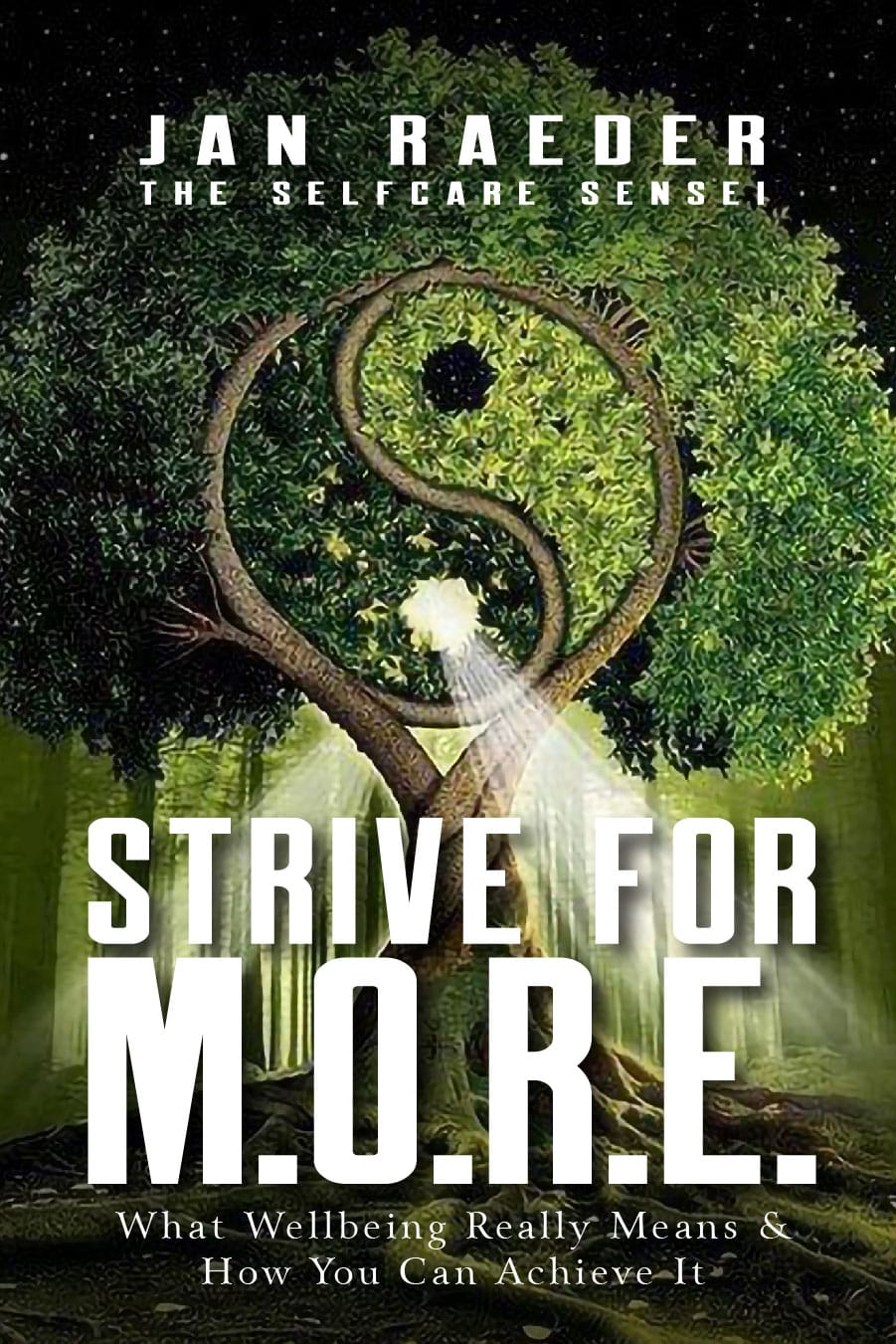
"Strive for M.O.R.E" by Jan Raeder, the Self-Care Sensei, is a transformative guide to personal well-being in the post-2020 world. Raeder draws on over three decades of experience to provide insights and evidence-based exercises for readers seeking positive change. The book explores the eight dimensions of well-being, delves into the intricacies of the human brain, and introduces the M.O.R.E. framework for a fulfilling life. With a focus on meaning, optimism, relationships, and engagement, Raeder empowers readers to step beyond their comfort zones, develop grit, and embrace change. The book is a roadmap to intentional and flourishing living, offering practical exercises to apply well-being concepts in daily life. Join the Self-Care Sensei on a transformative journey toward happiness and discover the keys to unlocking your full potential.

With a master's degree in wellbeing education, Jan (The SelfCare Sensei) has gained a deep understanding of the factors that contribute to overall wellbeing. Through her academic studies, she has developed a holistic approach to helping others live well, encompassing techniques that develop mental resilience and emotional balance. Jan believes that true wellbeing is achieved when all of these aspects are nurtured and aligned.
Wellbeing is vital to us all. Understanding wellness incorporates abstract ideas, phenomena intertwined with personal culture, tradition, psychological themes, and evidence-based research. Wellness is an active process and it’s subjective. I believe everyone is capable of living their best life.
"I think this is one of the most powerful/effective Wellbeing Wazas from the book. It has far reaching applications, e.g. self, children, and colleagues."
This exercise was first developed by Dr. Martin Seligman* and his psychology students. Dr. Seligman is a self-proclaimed pessimist. We really aren’t taught to think positively, in fact we are hard-wired for negativity – more on that in the next section of this book. This exercise helps to shift our thinking and ground us in what is meaningful in our lives. It’s simple really, each day try and consider three or more (or it could even be less) things that went well during your day. They don’t have to be big things; they can be small things. Once you have determined the events that went well, the next part of the exercise is actually the most important part. Why did those things go well? This is very different than writing things in a gratitude journal. To shift our thinking, we need to take the extra step to consider why these things went well. If you want to take the time to write these daily events down, feel free. This is the exercise I do right before I go to bed, it’s part of my nighttime ritual. I truly believe that it has improved my sleep, reminded me of what is meaningful for me on a daily basis, and it also sets me up for a positive next day. I don’t generally write down my “What Went Well” events as journaling for me is a bit tedious and awkward as mentioned earlier.
For parents that are reading this, this is a fantastic exercise to do with your children. If you are a family that makes the time to have a meal together, this is a great time to share; if you are too busy for a family sit-down meal, make this part of your kids’ bedtime routine. Kids can learn from your example and begin to look for what is positive and meaningful for them throughout their day. This can also serve as a wonderful opportunity to stay connected with your kids!
For those that work with others, whether you are part of a team or a team leader, this is also a wonderful exercise to include during meetings and the like. It not only keeps the positivity flowing but brings teams together by circling back to what is meaningful while also providing an avenue for all to feel like they are being heard and included.
*Seligman’s research showed that those who suffered from depression and utilized this exercise saw a marked improvement in their mood (Seligman, 2012, Seligman; Flourish: Positive Psychology, 2010).


Enter email below and we will send you a link when book becomes available for purchase.